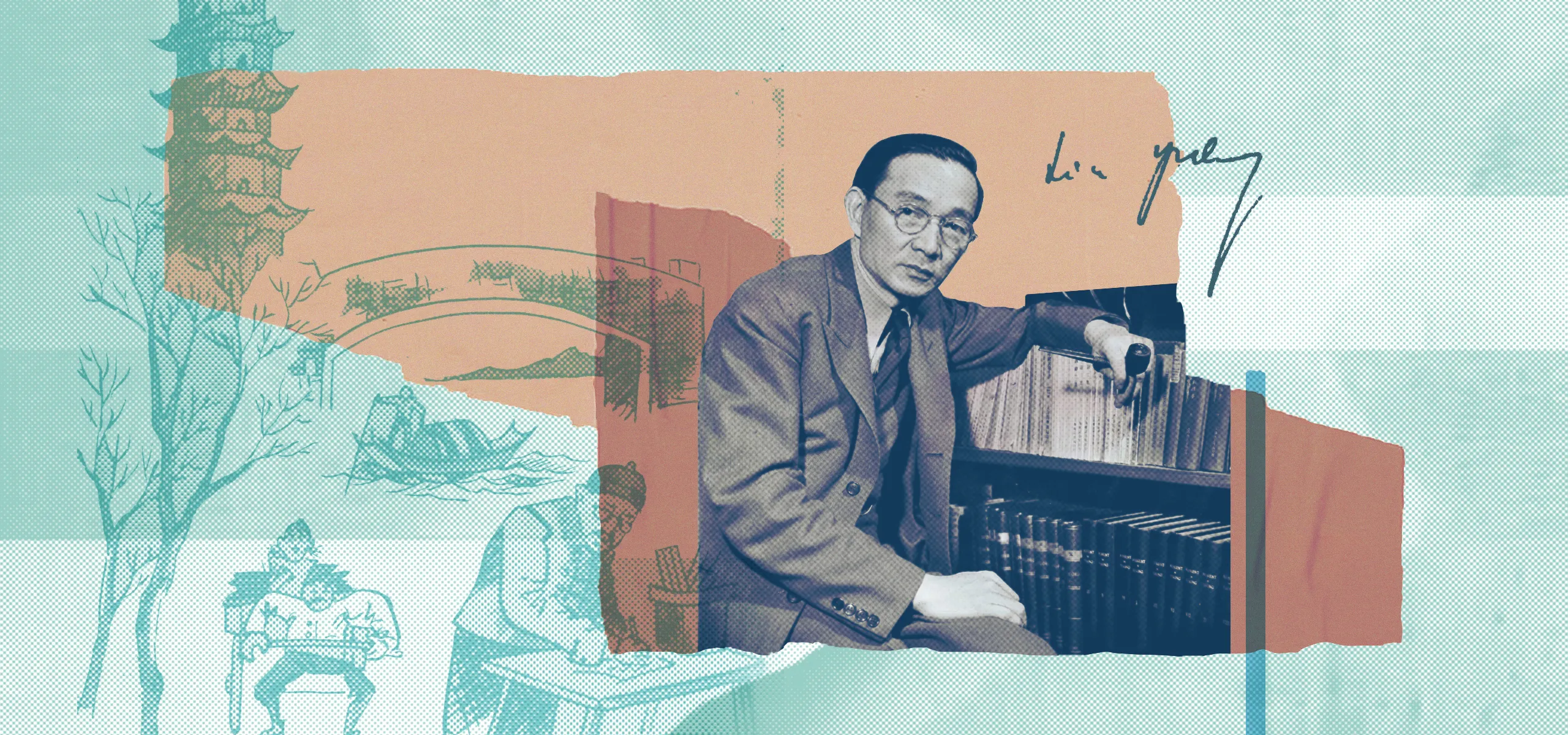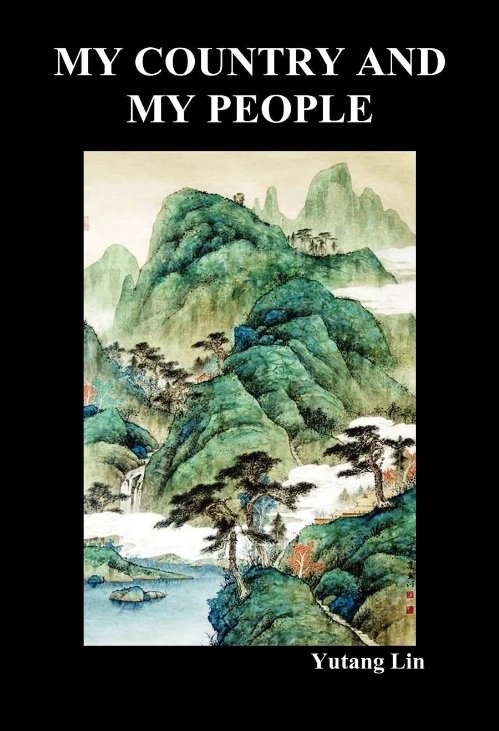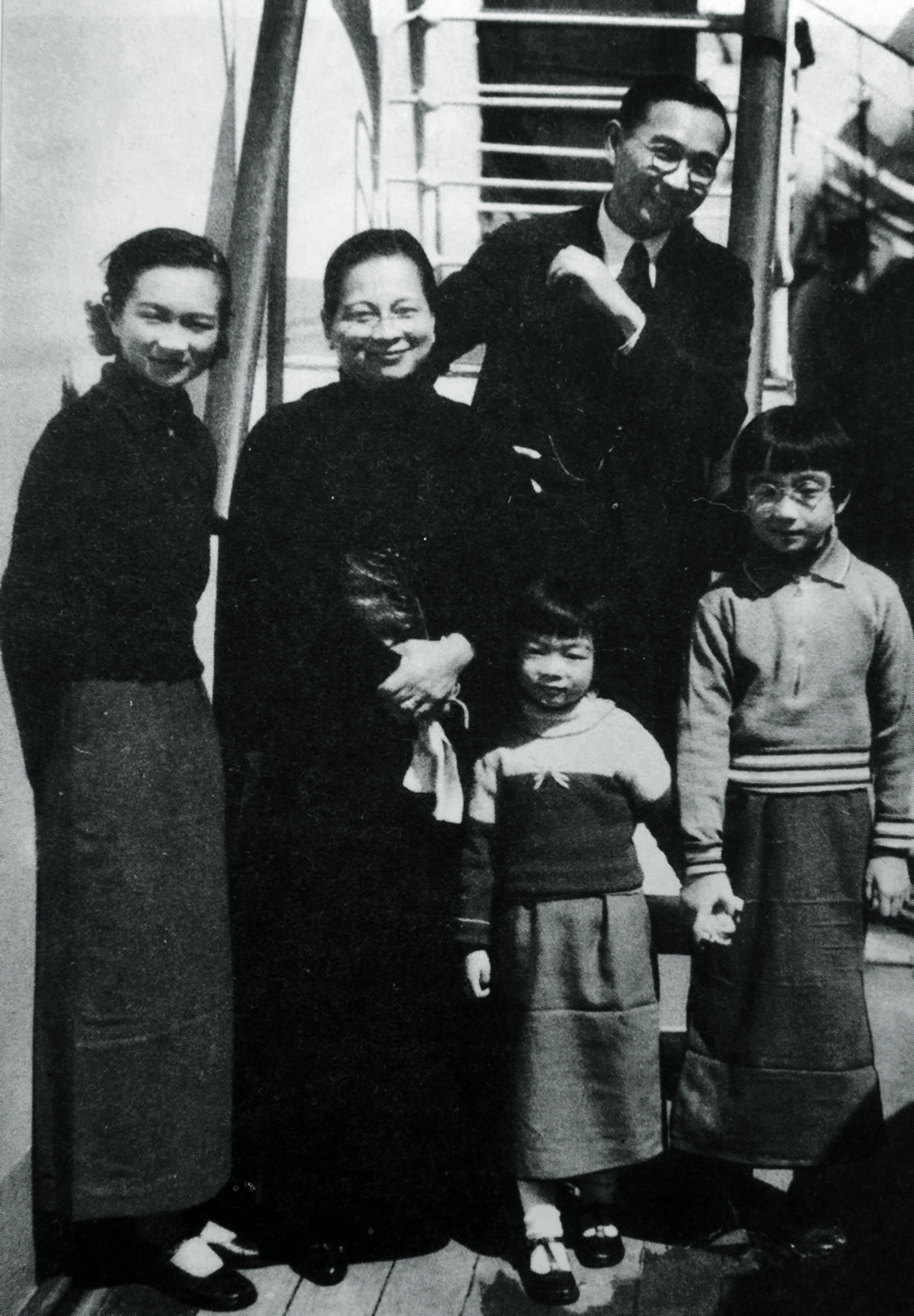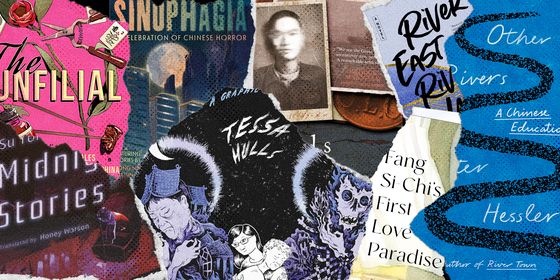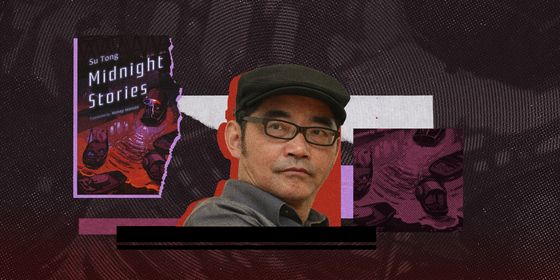Celebrating the 129th birthday of modern Chinese writer Lin Yutang with a reflection on “My Country and My People” and its insights into the roots of Chinese society
“Given extensive leisure, what do not the Chinese do? They eat crabs, drink tea, taste spring water, sing operatic airs, fly kites, play shuttlecock, match grass blades, make paper boxes, solve complicated wire puzzles, play mahjong, gamble and pawn clothing, stew ginseng, watch cockfights, romp with the children, water flowers, plant vegetables, graft fruits, play chess, take baths, hold conversations, keep cage-birds, take afternoon naps, have three meals in one, guess fingers, play at palmistry, gossip about fox spirits, go to operas, beat drums and gongs, play the flute, practice on calligraphy, munch duck gizzards, salt carrots, fondle walnuts, fly eagles, feed carrier pigeons, quarrel with their tailors, go on pilgrimages, visit temples, climb mountains, watch boat races, hold bullfights, take aphrodisiacs, smoke opium, gather at street corners, shout at airplanes, fulminate against the Japanese, wonder at the white people, criticize their politicians, read Buddhist classics, practice deep breathing, hold Buddhist séances, consult fortune tellers, catch crickets, eat melon seeds, gamble for moon cakes, hold lantern competitions, burn rare incense, eat noodles, solve literary riddles, train pot flowers, send one another birthday presents, kowtow to one another, produce children and sleep.”
So wrote Lin Yutang in My Country and My People in the 1930s, and though Lin wrote this almost a century ago, a good 80 percent remains true today. In some respects, for all the talk of rapid development and modernity, China has not changed as much as people think.
Nevertheless, so-called Old China Hands have been trying to capture China’s changing essence for decades, centuries even. Academics, journalists, diplomats, policy wonks, explorers, military men, and seemingly every Tom, Dick, or Harry who has so much as supped a glass of baijiu has attempted to define the “real China,” i.e. the authentic China—China as it really is. Most fail, though some make a decent fist of it. China is just too vast and disparate to be summed up in a few paragraphs, though it should be said the “China Watchers” do not merely offer short, pithy summations—they prefer to write books instead, long ones.
Not a year goes by without a dozen books being published that attempt to explain the nation and its people, the country’s past, present, and future. They usually veer toward the bombastic and hyperbolic too. Given lengthy, grandiose, or just portentous titles such as Age of Ambition: Chasing Fortune, Truth, and Faith in the New China; or The Chinese Century: The Rising Chinese Economy and Its Impact on the Global Economy, the Balance of Power, and Your Job, these tomes often fall into two camps: the one where China is a corrupt, money-grabbing cesspit, destined to rule a post-apocalyptic world in brutal fashion, and the other, the nation a soon-to-be fledgling democracy, sound for investment, destined to peacefully guide, using its long-accrued ancient wisdom along the way. To trot out an old cliché, “the truth is probably somewhere between the two extremes,” and it is.
One way to separate the wheat from the chaff with regard to all these confident conclusions is to use the steadfast marker of time. If a 2014 China book is being read or written about in 2100, it is a fair bet that it has something insightful to say. Using this meter, Lin’s 1935 effort, My Country and My People—a wide-ranging primer on all things Chinese—skewers the nation pretty well. Pearl Buck, Nobel Prize winner and author of penetrating China novel, The Good Earth, described Lin’s book as “the truest, the most profound, the most complete, the most important book yet written about China.” And there isn’t a facet of Chinese life Lin doesn’t attempt to tackle. For anybody with even a cursory knowledge of China, just reading the chapter titles and subtitles will cause you to nod (and perhaps laugh) in amused assent.
To name a few: North and South, Degeneration, Cultural Stability, Mellowness, Patience, Contentment, Femininity, Lack of Science, The Doctrine of The Golden Mean, Taoism, Home and Marriage, Ideal of Womanhood, The Courtesan and Concubinage, Absence of the Social Mind, Nepotism, Corruption and Manners, Poetry, Chinese Calligraphy, Eating and Drinking, and A Quest for Leadership.
Much like George Orwell’s attempts to pin down his own nation’s characteristics in England Your England, Lin’s tone is by turns patriotic, exasperated, critical, and loving. Both write as if they are a father playfully roughing a young son’s hair while tut-tutting at their sheer idiocy. Though in some ways the book is a paean to China, Lin focuses as much on the country’s flaws as its strengths, and certainly stops way short of praise for its own sake, being suspicious of those that do. He always carefully tempers his own patriotism, as he writes in the preface:
“It is also inevitable that I should offend many writers about China, especially my own countrymen and great patriots. These great patriots—I have nothing to do with them, for their god is not my god, and their patriotism is not my patriotism. Perhaps I too love my own country, but I take care to conceal it before them, for one may wear the cloak of patriotism to tatters, and in these tatters be paraded through the city streets to death, in China or the rest of the world.”
Harvard educated and writing the book in English, not Chinese, Lin feels close yet somehow distant from his subject matter at the same time, which is possibly why the book was such a huge success with Western (and later Chinese) audiences. Lin’s learning is such that his range of Western references is vast, and he is constantly employing amusing comparisons, usually skewering several nations at the same time. On the Chinese and their intense love of their families but broad indifference to strangers, he writes: “The Chinese have just as much good manners toward people outside their families and friends as the Englishmen in the colonies have toward people outside their race.”
Lin is, perhaps, at his best when telling an anecdote that somehow defines, or even caricatures, an assumed character of the Chinese people. Anybody who has ever used Chinese public transport will surely delight in Lin’s musings: “I have seen on a rainy day at a bus station in the inland a fellow passenger who, in the mad scramble for seats, found himself occupying the driver’s seat, and who steadfastly refused to give it up against the entreaty of station officials.”
As far as criticism goes, while generally prescient, the book is often very much of its time, and it often heavily relies on eugenic ideas of race from the time that are now outdated. Some might also say that the book lacks a clear thesis and is a somewhat meandering stroll through whatever Lin was feeling about China at the time, heavily anecdotal but with little data to prove his theories. To some though, this is a strength; Lin’s writing is highly aphoristic and eminently quotable, a babbling brook of homely and amusing ideas and astute common-sense observations. Anyone that really wants to get a handle on the near-impossible task of understanding what China is and who the Chinese are might be better off skipping the latest Peter Hessler or Evan Osnos to step back in time and give Lin Yutang a whirl—there is a slim chance you might just get to understand his country and his people.
This story is from our archives. Originally published in 2015, it has since been updated. Be sure to check out our latest issue for more great stories!





